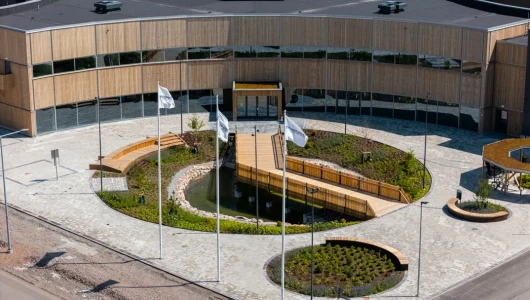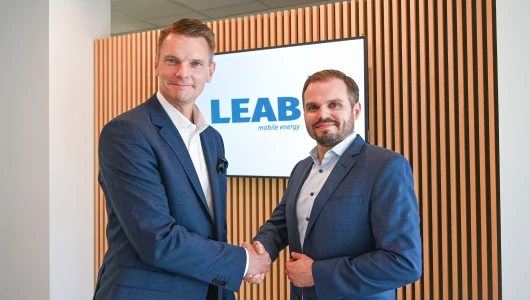In battery-powered and fully electrified systems, the native voltage of the main energy storage often differs from the requirements of subsystems such as control electronics, communication modules, or auxiliary devices. DC-DC conversion bridges this gap, supplying consistent and isolated power across complex architectures.

DC-DC Conversion
DC-DC conversion is a core technology in electrification, enabling efficient transformation of direct current (DC) power between voltage levels. It ensures stable, reliable power distribution in applications where multiple voltage domains, electrical isolation, or precise regulation are required.
Efficient Voltage Regulation in Electrified Systems
Multi-Voltage Systems in Industrial and Mobile Applications
Modern electrified platforms frequently require several DC voltage levels to operate efficiently. For instance:
- Construction equipment such as compact excavators and scissor lifts may operate with high-voltage traction batteries (48V, 80V, or 96V), while control systems, lights, and sensors run on 12V or 24V.
- Automated Guided Vehicles (AGVs) used in logistics and production lines rely on 24V or 48V battery systems for propulsion but require additional isolated voltages for navigation sensors, safety circuits, and communication hardware.
- Rescue and safety vehicles, including fire trucks and emergency response units, often use 24V systems for main operations while simultaneously needing regulated, isolated 12V supplies for instrumentation, medical devices, and signaling systems.
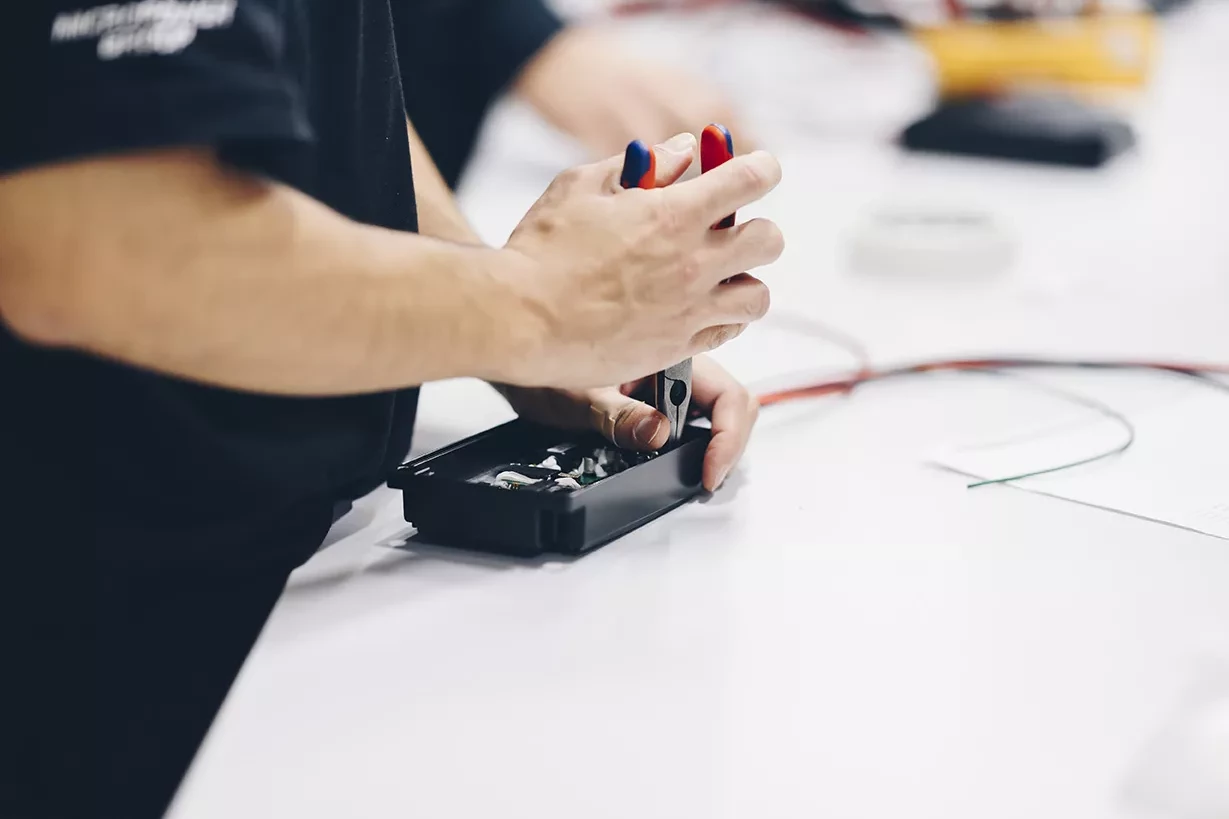
Electrical Isolation and Regulation
In addition to voltage translation, DC-DC converters serve a protective function by electrically isolating subsystems, preventing transient disturbances and unwanted ground loops. This is particularly critical in systems with mixed analog/digital signals, long cable runs, or multiple grounding points — all common in mobile and industrial environments.
Regulated DC-DC conversion also ensures that sensitive components receive stable voltage output, even when battery voltage fluctuates due to load or state-of-charge variations — a key factor in ensuring functional safety and predictable system behavior.
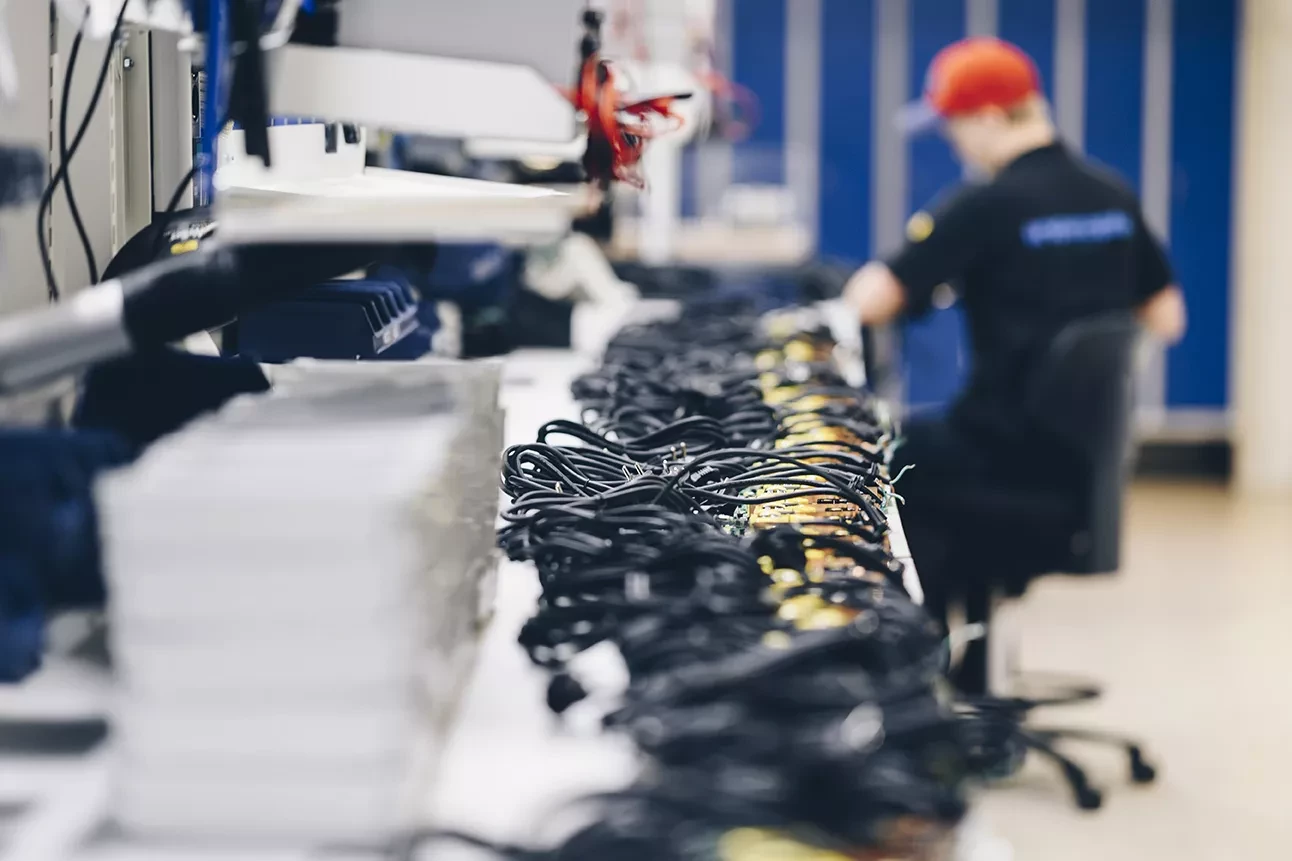
Designed for Harsh and Demanding Environments
Applications in off-road machinery, automated logistics, and emergency services place high demands on power conversion technologies. Environmental challenges such as vibration, dust, temperature extremes, and moisture require converters that are not only efficient but also mechanically and electrically robust.
Essential design characteristics include:
- High efficiency to reduce thermal stress and improve energy utilization
- Integrated protection (reverse polarity, overcurrent, thermal overload, overvoltage)
- Compact formats with simplified mounting and wiring
- High ingress protection (e.g. IP67) for outdoor and mobile applications

Micropower’s DC-DC Solutions – Optimized for Industrial Electrification
Micropower develops DC-DC converter units based on robust conversion topologies, tailored for harsh environments and electrified industrial platforms. The portfolio includes models ranging from 65W to 700W, covering input/output voltage combinations from 12V up to 120V.
Whether it's power distribution in AGVs, auxiliary system support in construction machinery, or stable voltage supply in rescue vehicles, Micropower’s converters deliver high efficiency, safe electrical design, and reliable performance. All models are available in IP67-rated housings and engineered for long-term durability in real-world conditions.
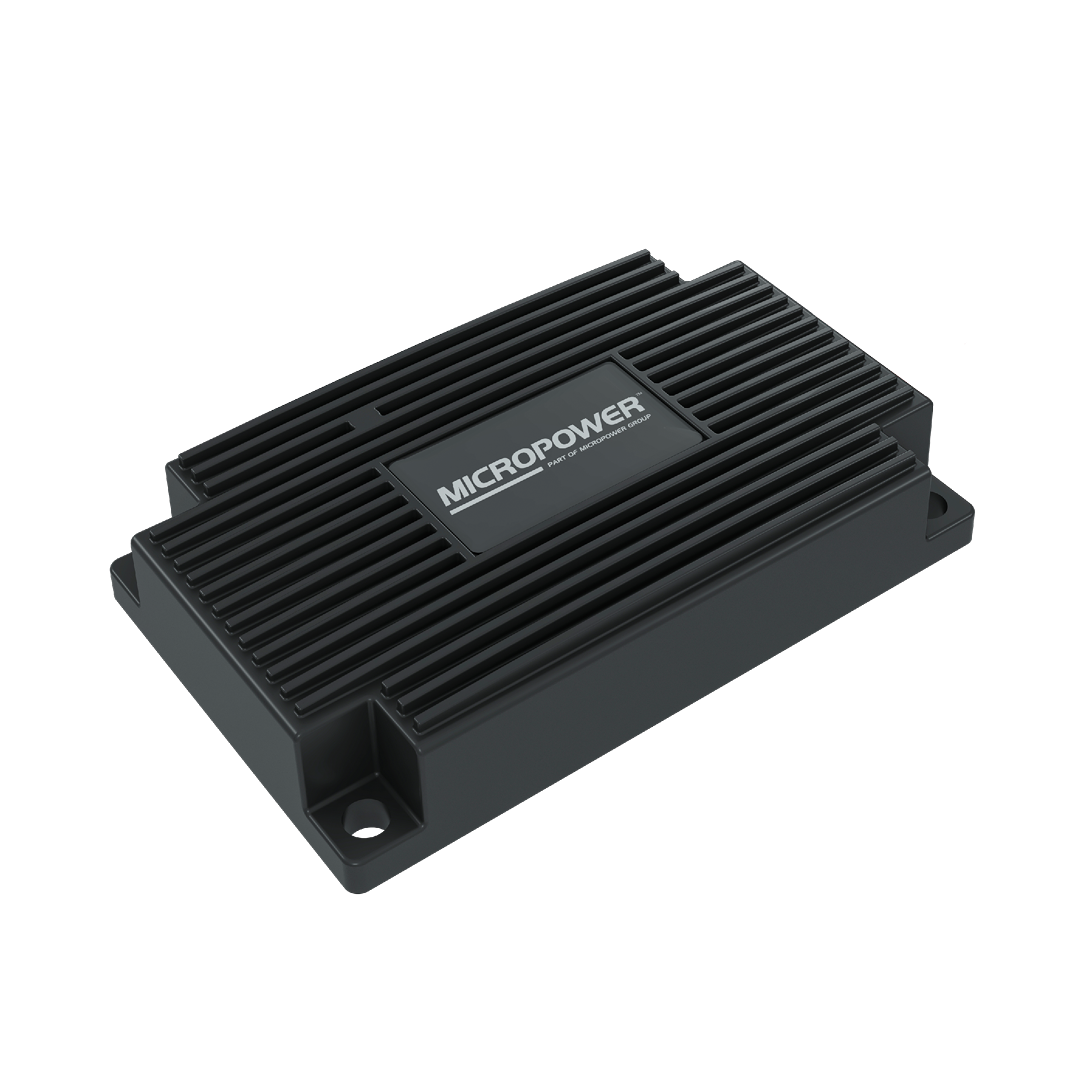
Contact us today
Are you interested in the transition towards sustainable energy solutions?
Do you want to know more about batteries, charging or power converters?
Our dedicated team of experts are ready to assist you.
